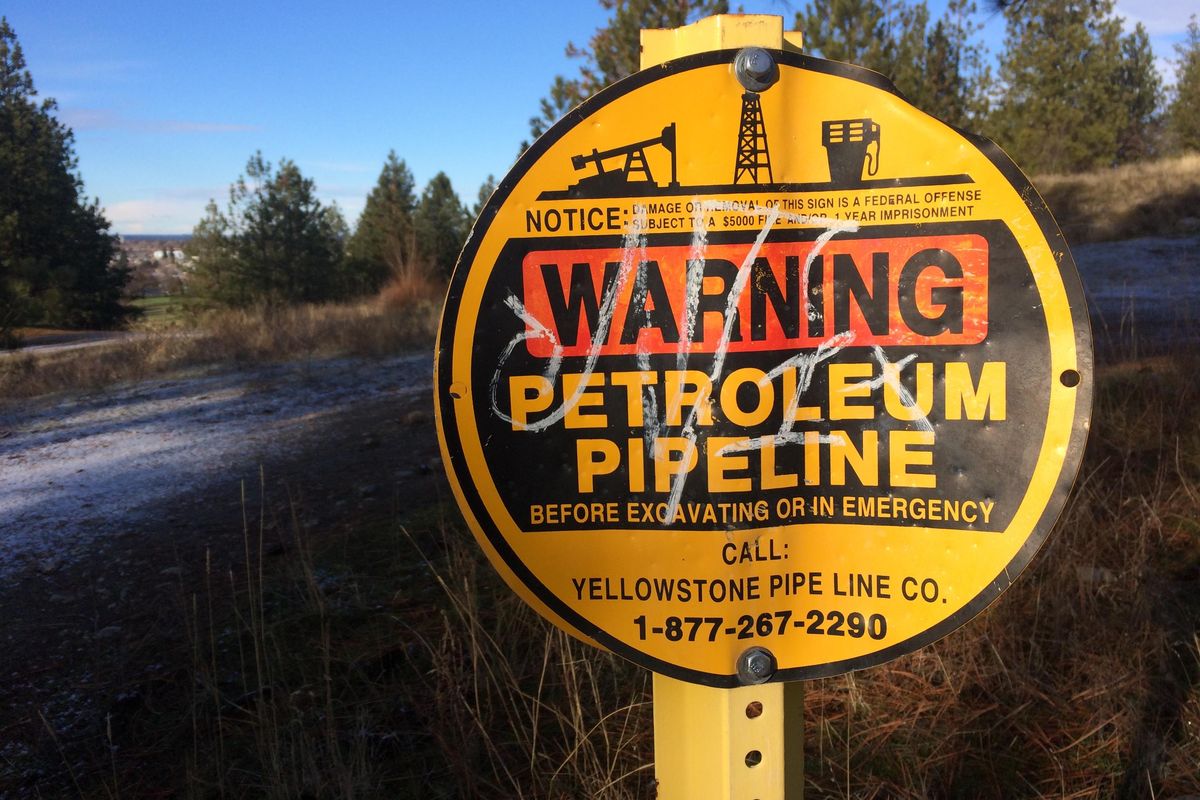Spokane officials working on new agreement for Yellowstone pipeline

Twenty years ago, Breean Beggs was in Bellingham when the Olympic Pipeline exploded.
As an attorney, Beggs represented the family of one of the three people who died when gasoline from the ruptured pipeline spewed into a nearby creek and erupted, and he later helped launch the Pipeline Safety Trust to avoid another calamity in the future.
Now he is one of seven members of the Spokane City Council who will be asked to approve a new 25-year agreement with the Yellowstone Pipe Line Co. to continue operations in Spokane.
At a Monday meeting of the Public Infrastructure, Environment, and Sustainability Committee, which Beggs chairs, city officials provided a brief on the negotiations.
Beggs has pushed for assurances that the company will be liable financially in the event of a catastrophe like the one that struck Bellingham in 1999, and that the city will use what little leeway it has under federal law to protect its drinking water supply.
If approved by the City Council, a proposed franchise agreement would require the petroleum pipeline to secure a $100 million liability insurance policy and pay the city $25,000 annually.
“They’re owned by large companies,” Beggs said, “but the oil companies are simply shareholders and are often protected from any liability beyond the assets of the (pipeline) company.”
The pipeline runs within 50 feet of the Parkwater well site, which supplies a large percentage of the city’s drinking water. The city asked the pipeline to relocate, but it declined, citing the City Council’s original approval of the route more than a decade earlier and relocation costs of an estimated $1 million, according to the city.
To address these issues, the pipeline committed $75,000 for the city to conduct a vulnerability assessment requested by Beggs.
“If it were to rupture, not only would we have a problem supplying water, but the cost of that would be astronomical,” Beggs said.
Beggs acknowledges that the city can’t impose its own safety regulations, but believes the city could still take action to protect its drinking water.
“We are, under federal law, allowed to pass on the cost any safety things that we have to do in order to protect our water. We could, hypothetically, move our well and then bill them for that,” Beggs said.
In 2015, the city announced plans to build a backup well. The planned site in the Emerson Garfield neighborhood in north Spokane ultimately did not work, but the city drilled a new well near Havana Street and Eighth Avenue this year. It plans to add pumps to the well in 2020, according to city spokeswoman Marlene Feist.
The Yellowstone Pipe Line Co. is separately negotiating an easement with the city to replace a section of pipe through the Spokane River near Felts Field.
Feist said the city’s water department is conducting an assessment of the system’s vulnerability.
“There will also be additional emergency flow valves that will be installed with the new pipe crossing the river by Felts Field,” she said.
The pipeline has long carried petroleum products through Spokane, but its franchise agreement expired in 2005. Forging a new agreement with the city has been delayed by a number of obstacles, including a federal court review regarding the rights of municipalities to regulate pipelines.
A final proposed agreement is expected to be brought to the City Council before the end of the year.
The pipeline company is owned by Phillips 66 Co., Exxon Pipeline Holdings and Sunoco Pipeline. Phillips 66 did not immediately return a request for comment on Wednesday.
The liability insurance is a key factor in the proposed deal. It would begin at $100 million but could be increased after the first five years of the franchise agreement.
“Hopefully that will never have to come into play, but there is a $100 million guarantee,” said assistant city attorney Tim Szambelan, adding that the figure is in line with the pipeline regulations in cities on the West Side.
Beggs noted that the Olympic Pipeline Co. explosion cost was “well over $100 million.” He sought assurances that the companies that own the pipeline would cover any costs above $100 million in the event the Yellowstone Pipeline were to erupt or leak.
The city is limited in what it can require of the pipeline, which is regulated by the federal Pipeline and Hazardous Materials Safety Administration and the state Pipeline Safety Commission. The state commission inspects interstate pipelines and enforces safety standards.
There are shutoff valves throughout the pipeline system in case of an emergency. A control center in Oklahoma monitors the system continuously.
“What we have gained through this franchise agreement is a level of what their maintenance entails, what their inspections entail, the shutoff locations of the valves that ensures our aquifer and our river are protected,” said Dan Kegley, the city’s director of wastewater management. “I think those are key portions of this franchise agreement.”
The proposed agreement would include $25,000 annual payments to the city, a substantial increase over the $200 stipulated under the old deal. After five years, the payment will be increased by the rate of inflation or 1.5%, whichever is greater.
The pipeline, then operating as Salt Lake Pipeline Co., was first authorized by the City Council in 1954.